 Petzlover
Petzlover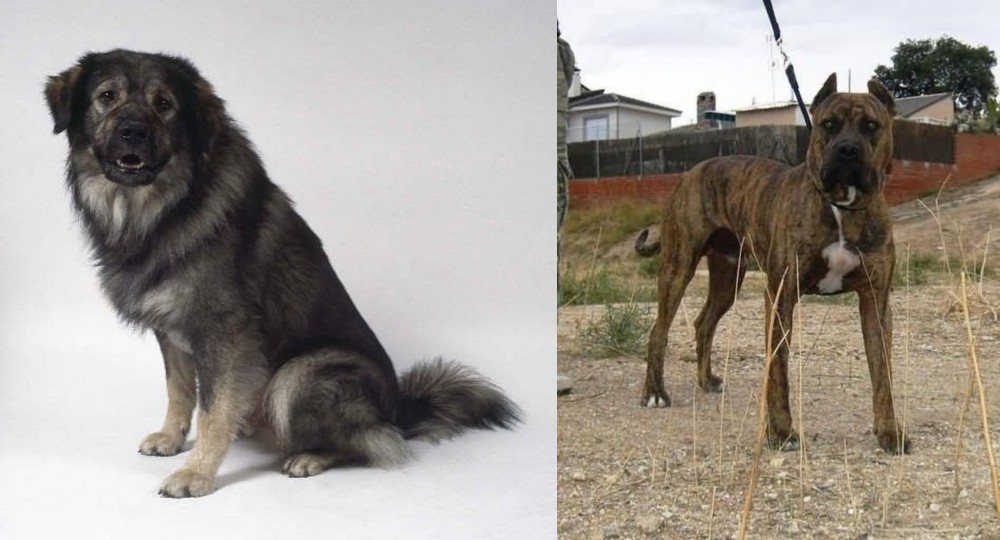 Istrian Sheepdog is originated from Slovenia but Perro de Toro is originated from Spain. Both Istrian Sheepdog and Perro de Toro are having almost same height. Both Istrian Sheepdog and Perro de Toro are of same weight. Both Istrian Sheepdog and Perro de Toro has almost same life span. Both Istrian Sheepdog and Perro de Toro has almost same litter size. Istrian Sheepdog requires Moderate Maintenance. But Perro de Toro requires Low Maintenance
Istrian Sheepdog is originated from Slovenia but Perro de Toro is originated from Spain. Both Istrian Sheepdog and Perro de Toro are having almost same height. Both Istrian Sheepdog and Perro de Toro are of same weight. Both Istrian Sheepdog and Perro de Toro has almost same life span. Both Istrian Sheepdog and Perro de Toro has almost same litter size. Istrian Sheepdog requires Moderate Maintenance. But Perro de Toro requires Low Maintenance
 Known also as the Karst Sheepdog, the beautiful, medium sized Istrian Sheepdog hails from Slovenia, Yugoslavia in the 1600s, being used to guard sheep. In fact, the Karst Shepherd was recognized as the Illyrian Shepherd in 1939.
Known also as the Karst Sheepdog, the beautiful, medium sized Istrian Sheepdog hails from Slovenia, Yugoslavia in the 1600s, being used to guard sheep. In fact, the Karst Shepherd was recognized as the Illyrian Shepherd in 1939.
The dog is fairly scarce in his own country, but interest in the dog started developing in the late 1970s. The Fédération Cynologique Internationale recognizes the breed and it has also been exported to the United States, being recognized by the United Kennel Club.
It is also recognized by a number of smaller kennel clubs. The dogs numbers have declined at certain periods in its history but fortunately breeding programs boosted its numbers.
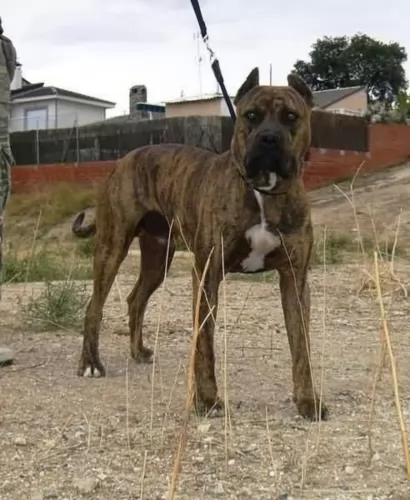 The rare Spanish Perro de Toro seems to have unclear origins, with some saying the dog is a direct descendant of the Toulouse Mastiff, while others say that the dog was developed by crossing the Alano with the Dogue de Bordeaux.
The rare Spanish Perro de Toro seems to have unclear origins, with some saying the dog is a direct descendant of the Toulouse Mastiff, while others say that the dog was developed by crossing the Alano with the Dogue de Bordeaux.
The dog hails from Spain and was once used as a fighting kind of dog but today it is essentially a family pet. The dog is an ancient breed, an ancestor of many of the molosser breeds that are around today.
 This is a medium sized, muscled, strong dog with an iron-grey coat that has shades of deeper grey. His beautiful coat is long, thick and fairly harsh to the touch, with the undercoat protecting the dog against cold weather.
This is a medium sized, muscled, strong dog with an iron-grey coat that has shades of deeper grey. His beautiful coat is long, thick and fairly harsh to the touch, with the undercoat protecting the dog against cold weather.
Around the neck area the hair is longer, forming an eye-catching-like mane. The stomach area has longer hair too. He has a noble look about him with kind, brown eyes and a round skull. The muzzle of the dog is dark, the limbs long and muscular and the tail is long and covered in thick fur.
The dog is slightly longer than its height, and both males and females stand at 54 to 63cm in height and weigh between 26 and 40kg. The long tail reaches right down to the hocks. The ears of the dog are fairly short and are floppy.
This dog has always made an excellent guard dog, being alert and also being distrustful of strangers. He will need to be trained and socialized if you want him to be obedient to you and more amicable around children in the home as well as visitors to the home.
If he is trained and well socialized, he is able to make a good pet. However, he is an energetic dog, used to working and he isn't recommended for life in the city if there is only a tiny garden. He needs space and will require a large garden.
He will also need to be exercised and not just left to his own devices in the backyard. Because he is essentially a working dog he doesn’t easily fit into the role of pet and companion. He is a working dog and will need to be kept busy.
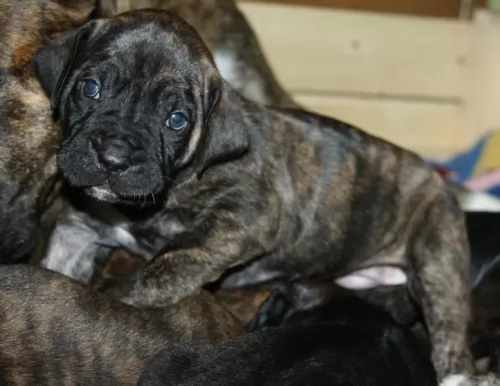 This is a strong, powerful, large breed of dog, making a good watchdog and guardian. He can be anything from 56 to 64cm in height and weigh between 34 and 40kg.
This is a strong, powerful, large breed of dog, making a good watchdog and guardian. He can be anything from 56 to 64cm in height and weigh between 34 and 40kg.
The nose of the dog is broad and black, the ears are set high and droop over slightly,making them floppy ears, but they have always been cropped to stand up erect.
He's a sturdy dog and the tail is fairly thick at the base, tapering to a point. These days it tends to be undocked and left long. The neck is strong and powerful too and the head brachycephalic. The short coat includes colors such as yellow, grey, fawn and red with the black mask.
The Spanish Bulldog looks fairly intimidating and he will certainly need training and socialization if he is to be obedient and well behaved.
He isn’t aggressive but is confident, dominant, fearless, loyal and also loving towards his owner. He is devoted towards his human family and is good with children. Like any mastiff type breed, he will need a firm, kind, consistent, patient owner. This is the kind of owner who will understand this breed type and take time out with him to exercise him and provide him with mental and physical stimulation so as to prevent boredom.
 Your Istrian Sheepdog is a unique, strong-willed dog that is used to guarding, and working and he wants to be kept involved and busy.
Your Istrian Sheepdog is a unique, strong-willed dog that is used to guarding, and working and he wants to be kept involved and busy.
He is wary of strangers and makes an excellent guard dog for any family home. Remember that it is never good to invest in a dog purely for guard dog purposes. A dog such as the Istrian Sheepdog is a social creature and he also wants- and needs to be part of a human family that provides him with plenty of interaction with them.
The Istrian Sheepdog is a loyal, loving dog who is capable of forming strong bonds with his human family. With proper training and socialization he makes a good friend of children and the elderly too.
Include him in all your family activities just like any human family member and he will make you a splendid, courageous pet.
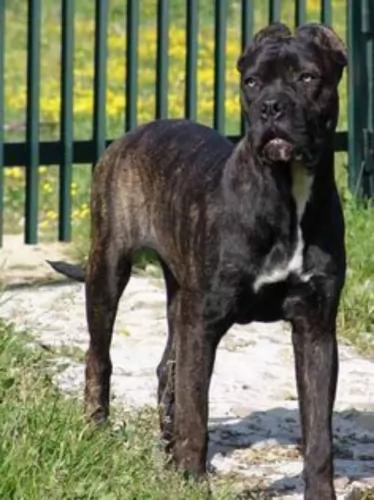 Contrary to what many people think, the temperament of the Perro de Toro is calm and well balanced. This is a reliable, loving, loyal dog who wants to protect his human family.
Contrary to what many people think, the temperament of the Perro de Toro is calm and well balanced. This is a reliable, loving, loyal dog who wants to protect his human family.
He gets on well with children and with pets in the home and when trained and socialized, this intelligent dog is well mannered, obedient and sometimes even submissive.
True, the Perro de Toro has a history of being involved in all kinds of things, from hunting to fighting and also being a working dog, but he is now waiting to show you what a splendid pet he can be if he is raised by the right kind of people.
 As with many other dog breeds, the Istrian Sheepdog is a healthy dog that, because of history of hard work, is robust and able to stand up well to common dog illnesses.
As with many other dog breeds, the Istrian Sheepdog is a healthy dog that, because of history of hard work, is robust and able to stand up well to common dog illnesses.
However there is one dog illness that strikes many dogs and at any age, and it is hip dysplasia. This is a malformation of the hip joints.
You'll notice that your once active dog is lethargic, doesn't want to play so much anymore and battles to get up after lying down. The disease is painful for your dog and it can lead to mobility issues. The disease is diagnosed with x-rays and your vet will recommend treatment options to make life more comfortable and less painful for your beloved pet.
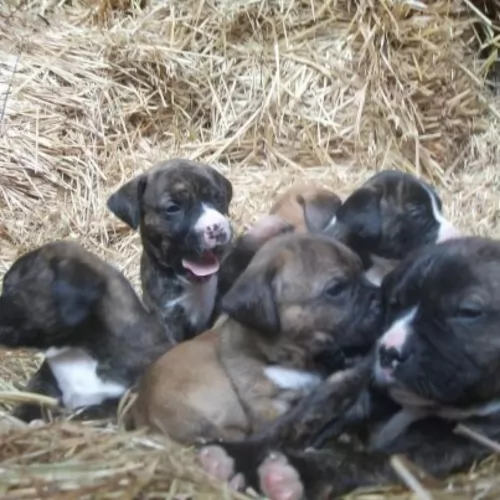 This is a dog breed that is fit and healthy, but to keep him that way you want to make sure he has enough exercise, love and nutritious food.
This is a dog breed that is fit and healthy, but to keep him that way you want to make sure he has enough exercise, love and nutritious food.
He is not known to suffer from any particular disease, but even so, it is wise to be aware of some of the common dog illnesses that your dog could pick up so you can get veterinary help for him just as soon as possible.
With cancer, cells grow rapidly and invade tissue. Dogs can get any of the many cancers there are. Both hereditary and environmental factors can contribute to the development of cancer in canines. Cancer can show up as lumps, swelling, sores that won’t heal, weight loss and difficulty with breathing.
Heartworms are transmitted from one animal to the next by mosquitoes. These worms live in the heart and pulmonary arteries of an infected animal, travelling through the bloodstream and causing havoc. Heartworm is dangerous and can actually be life threatening. Symptoms include coughing, vomiting, battling to breathe and weight loss.
This is a viral disease that can strike terror in anybody who has seen an animal with rabies. It affects the brain and spinal cord of your dog. It is preventable through means of a vaccine. Once symptoms appear, it is a disease which is nearly always fatal.
 This is a dog that is used to guarding his flock and he will need to be in a home that has a fair sized garden. He can adapt to life in the city or to the countryside, but wherever he is, he will need sufficient exercise. Take him with you on your walks or hikes and give him some rope- and ball games.
This is a dog that is used to guarding his flock and he will need to be in a home that has a fair sized garden. He can adapt to life in the city or to the countryside, but wherever he is, he will need sufficient exercise. Take him with you on your walks or hikes and give him some rope- and ball games.
Wherever you live in the world, when the Winter winds howl and blow in icy rain or snow, a dog is at an increased risk of illness. You decided to have a dog in your home and it is your responsibility to care for him. Winter weather is downright unpleasant and dangerous for most pets.
Bring your pet in during such weather and provide him with a warm, dry sleeping space. During hot weather, make sure your pet has a cool, shady spot to lie down in, out of the boiling sun. Whatever weather you're experiencing, your pet should never ever be without a constant supply of fresh, cool water.
Provide him with excellent food that is full of vitamins and minerals to keep him healthy. Learn to know what human foods can be toxic for him and cause him digestive problems.
Your double coated Istrian Sheepdog will need a thorough brushing at least twice a week because of his dense, double coat. He does shed and isn't a hypoallergenic dog. His thick coat can tangle easily if it isn't properly brushed and maintained.
Clip his nails when and if they grow long. Other grooming aspects for this attractive dog require checking his ears for infection and also checking his teeth as dental disease can lead to a host of serious illnesses in your dog.
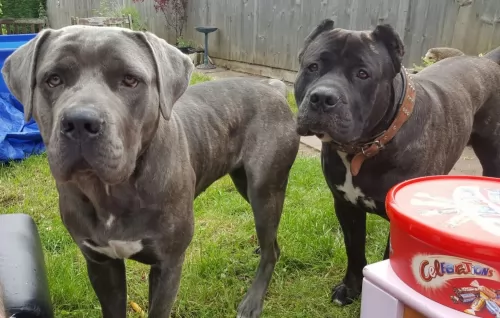 If they are not being used as working dogs, they are family pets, and you need to give them a lot of daily exercise. You will need to give him some walks or hikes and allow him a good run in the country.
If they are not being used as working dogs, they are family pets, and you need to give them a lot of daily exercise. You will need to give him some walks or hikes and allow him a good run in the country.
The Perro de Toro is a short haired dog, and as a moderate shedder, he isn’t going to require too much grooming. A brushing twice a week will help get rid of his hair.
When brushing him, turn it into a bit of a grooming session and check inside his ears, look at his eyes and try to look inside his mouth. He can’t tell you if he has terrible toothache from a rotting tooth and he will rely on you to check his teeth.
Mastiff type dogs need a wholesome diet to remain strong and active. If you are going to feed your pet one of the commercially manufactured dog foods, make sure it is one of the top quality ones.
Avoid the ones that use lots of colorants, preservatives and unhealthy fillers as these can make your dog sick. Try and give him some home-made food which can be added into his dry kibble occasionally.
Boiled chicken, brown rice or pasta and some vegetables such as carrots, sweet potato and spinach chopped up will be excellent for him and will ensure he doesn’t battle with digestive upsets. If you can, every now and then try to include some raw meat for the benefit and health of your pet. Never leave him without a bowl of fresh, cool water.